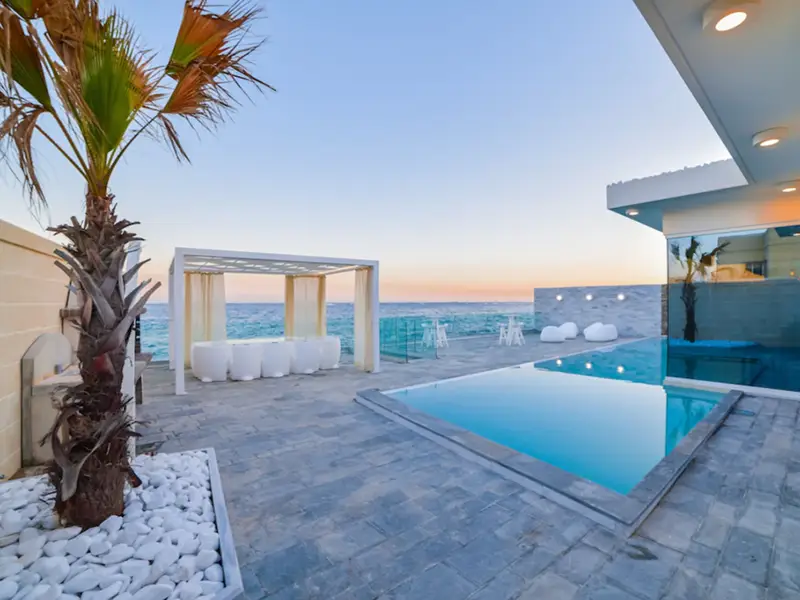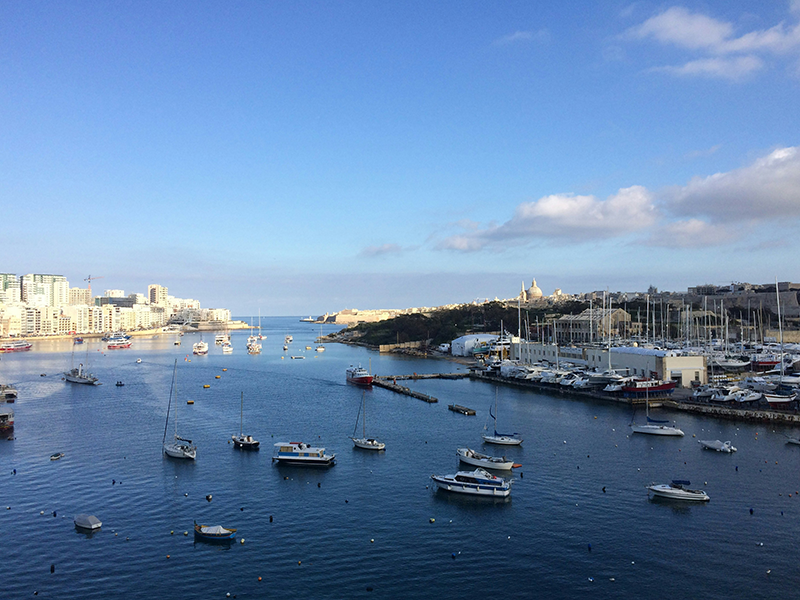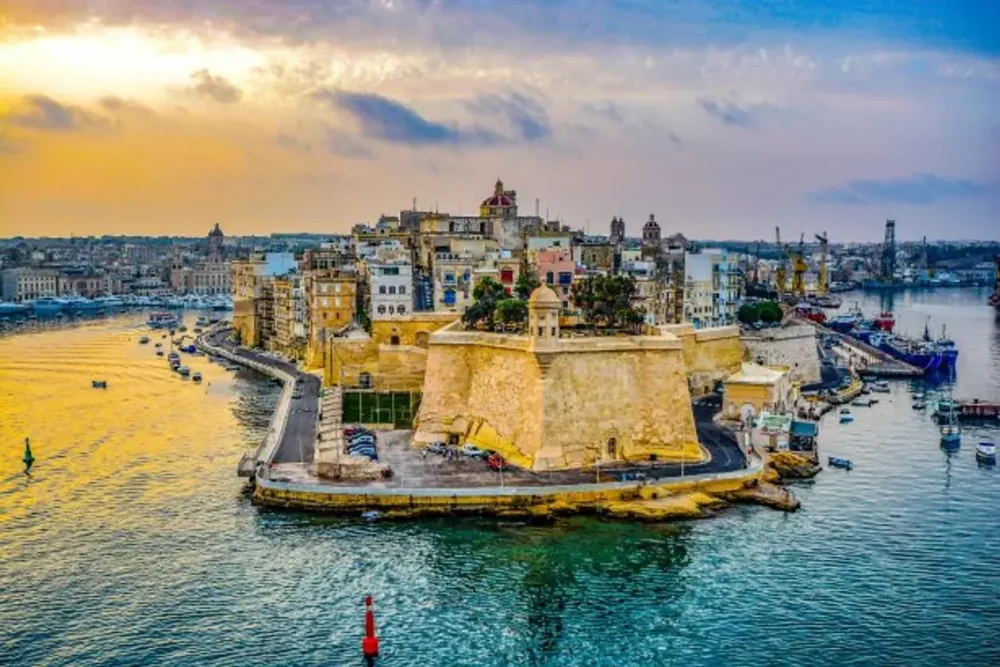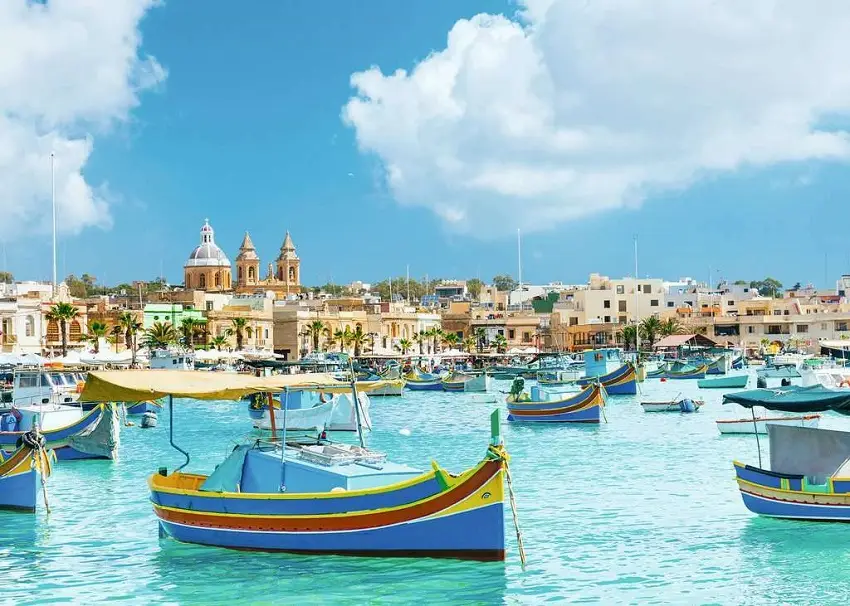Property in Malta has become one of the most popular investment options in Europe due to its attractive economy, loyal tax system and steadily rising house prices. Everyone who chooses the island nation gets not just a piece of property, but access to a unique lifestyle on one of the most beautiful islands in the world.
A unique feature of the Maltese market is the opportunity to purchase different types of square metres: from apartments with sea views to majestic villas and historic properties in the heart of Valletta.

Advantages of investing in property in Malta
- Steady growth in value. Average annual price growth is 6-8%, which is more profitable compared to bank deposits.
- Attractive conditions for obtaining a residence permit. The purchase of property provides the opportunity to apply for a Malta Gold Visa, which allows free movement within the EU.
- Low taxes. The state’s tax system provides favourable conditions for foreign investors, which is especially attractive for those who plan to invest large sums in property.
- There is a high demand for rentals. Apartments and villas near the coast are in particular demand, which provides a stable income for investors.
Types of property in Malta: apartments and villas
Apartments are a great choice for those who want to enjoy comfort combined with views of the turquoise waters of the Mediterranean Sea. The island offers a wide range of flats, from compact studios to luxury penthouses with terraces and swimming pools. Especially popular are the apartments in the new residential complexes, which include additional amenities such as secure parking, swimming pools and fitness centres.
Features:
- Developed infrastructure. Complexes are often located near shops, restaurants, beaches and public transport.
- There is a high demand for rentals. Apartments in areas with sea views or in Valletta’s historic neighbourhoods provide stable rental income.
- Installment programmes for Malta property from developers make buying more affordable.
Luxury on the shores of the Mediterranean Sea
The villa is synonymous with luxury and privacy. The property provides not only spacious living areas, but also access to private pools, sea view terraces and spacious gardens. Villas are often located in prestigious areas such as Sliema or St Julian’s, where residents can enjoy tranquillity and comfort without giving up the benefits of city life.
Benefits:
- Private area and security. Most villas are surrounded by high fences and are equipped with security systems to guarantee privacy and tranquillity.
- Stunning views. Sea view terraces and private pools create an atmosphere of absolute privacy and luxury.
- High rental income. Renting out a villa, especially during the tourist season, brings a significant income, as the demand for such properties remains consistently high.
Malta neighbourhoods: where to buy property
 Owning a property in Valletta is a unique opportunity to experience the history and culture of the state. The island’s capital and centre of business activity, home to government offices, offices, restaurants and cultural attractions. Flats and flats in Valletta are ideal for those who want to be at the centre of the action, as well as those who plan to rent out to tourists.
Owning a property in Valletta is a unique opportunity to experience the history and culture of the state. The island’s capital and centre of business activity, home to government offices, offices, restaurants and cultural attractions. Flats and flats in Valletta are ideal for those who want to be at the centre of the action, as well as those who plan to rent out to tourists.
Benefits of the purchase:
- Proximity to attractions. Museums, churches, theatres and parks are within walking distance.
- There is a high demand for rentals. Tourists prefer to stay in the city centre, which provides high income to property owners.
- Unique architecture. Many buildings in Valletta are of historical value, which adds to their attractiveness to investors.
Life by the sea
Property by the sea attracts those who dream of a home overlooking the vast expanse of the Mediterranean Sea. The most popular areas are Sliema, St Julian’s and Mellieha, where buyers can find everything from modern apartments to luxury villas.
Pros:
- Gorgeous views and beach access. Living on the first line by the sea guarantees daily panoramic views and direct access to the best beaches.
- Infrastructure and Amenities. There are cafes, restaurants, shops and entertainment centres along the coast, making life comfortable.
- High rental yields. Accommodation on the coast remains the most demanded among tourists, especially in the summer season.
How to buy property in Malta: a step-by-step guide
To buy a flat in Malta or any other accommodation, it is necessary to follow certain rules that will help to avoid legal and financial risks:
- Determining the purpose of the purchase: investment, living, leisure.
- Conducting a legal check of the object to ensure that there are no encumbrances or debts.
- Signing a preliminary contract and paying a deposit, which is usually 10% of the value of the property.
- If necessary, it is possible to apply for a mortgage or use the developers’ offers on instalments.
- Signing of the main contract at a notary and registration of ownership in the land registry.
Affordable conditions for investors
Buying objects in instalments is a convenient option for those who are not ready to pay the entire amount at once.
Conditions of purchase by instalments:
- Down payment. Usually ranges from 10% to 30% of the value of the property.
- Timing of payments. The instalment can be granted for up to 10 years, depending on the developer’s terms and conditions.
- Flexible payment schedules. Possibility to adapt the payment schedule to the financial possibilities of the buyer.
Property in Malta for retirees and businessmen
Ideal place for retirees who want to enjoy a quiet life by the sea. Accommodation here is characterised by its convenient location, proximity to medical facilities and well-developed social infrastructure:
- Warm climate all year round. The average winter temperature is around +15°C, making the island a comfortable place to live all year round.
- Excellent medical care. The island is home to modern clinics and hospitals offering high quality medical services.
- Social Engagement. A large number of clubs, activities and cultural events that allow pensioners to remain active and socially integrated.
Profitable opportunities for entrepreneurs
The state offers a stable economy and an attractive business environment, making Malta a great place to open offices, shops and other commercial facilities.
Why choose Malta for business:

- Low tax rates. The system is one of the most loyal in Europe, which makes it attractive for entrepreneurs.
- Conveniently located in the centre of the Mediterranean Sea, facilitating logistics and access to markets in Europe and Africa.
- State support for business. Support programmes and incentives for small and medium-sized businesses, which helps to develop projects and obtain additional funding.
Conclusion
 Property in Malta is an opportunity to enjoy life on the shores of the Mediterranean Sea, earn a stable rental income and have access to the best conditions for doing business. Whether buying a holiday villa or a rental apartment, the investment brings not only financial benefits but also the pleasure of living on one of the most picturesque islands in Europe.
Property in Malta is an opportunity to enjoy life on the shores of the Mediterranean Sea, earn a stable rental income and have access to the best conditions for doing business. Whether buying a holiday villa or a rental apartment, the investment brings not only financial benefits but also the pleasure of living on one of the most picturesque islands in Europe.
 en
en  de
de  ar
ar  es
es  hi
hi  fr
fr  nl
nl  it
it  pt
pt  el
el 









